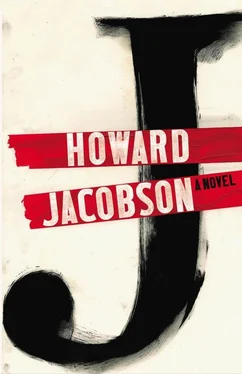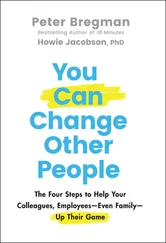I thought he was going to throw up.
It struck me as a good job that no locals were present to witness Kevern’s fastidiousness. They would have been still more inclined to lynch him. I have thought about what he said many times. Not on the subject of urinating in company but on the subject of hating those it would have been better that you’d killed. Was he right? And why such murderous hatred in the first place? I could only suppose that the living evidence of someone and somewhere else — the someone and somewhere else those pub regulars could smell on us the minute we entered the room — entirely undermined their confidence in the sufficiency of who and where they were. Are we so precarious in our sense of self that the mere existence of difference throws us into molecular chaos? Is it electrical? And was it even possible that Kevern’s inability to pass water in my company had a comparable effect on me? I’m not saying I wanted to kill him on account of his extreme niceness in the matter of a quick piss, but I don’t rule out the possibility that I did. Joking. No real danger, of course, because I’ve read too many poems and seen too much art to be a man of violence — art and poetry being what those troglodytic aphid-haters lacked to turn them from monsters into men.
I didn’t convey any of these thoughts to Gutkind, who struck me as a bit of a trog himself, a brooding more than a thinking being anyway. ‘She’s got it into her head that I see plots everywhere,’ he was saying when I returned from my reflections. His wife he was talking about. ‘And you’ve got it into your head that someone’s been plotting to get her to think that?’ I replied. He eyed me narrowly. I knew what he was thinking. ‘Supercilious swine!’ But you get that a lot in my profession. The world does not care for professors, even though for a while it was hoped that a number of the worst sort had been thinned out in the purges.
I ordered more drinks and proposed a toast to the course. ‘Megan Abrahamson should sort her out proper,’ I said, trying to sound like a local. He shook his head, not doubting my confidence but annoyed that a wife of his needed to be sorted out at all. Evidently he took it as a slur on his manhood and position. ‘In my line of work,’ he said — from which I took him to imply that my line of work wasn’t work at all — ‘you rarely see an effect without a cause. I don’t say every victim has been playing head games with the culprit, but more often than not a crime could have been averted had the victim been more circumspect.’ I nodded my approval at his use of ‘circumspect’. Fair’s fair — if you mark a man down for inconsequence you should also mark him up for vocabulary. ‘And if there’s a reason why one person’s been attacked,’ he went on, without showing me any gratitude, ‘there sure as hell has to be a reason why a couple of hundred thousand were.’
‘If they were.’ At any time it seemed necessary to me to throw that in, but with our wives currently receiving corrective instruction from Megan Abrahamson it seemed especially important to be punctilious.
‘I grant your if in so far as it relates to eventuation,’ Gutkind said, ‘but not in so far as it relates to provocation.’
Get him, I thought. But put this sudden turgescence of language down to police school.
I took his point. In the matter of deserts he was an unreconstructed non-iffer. What had happened had had to happen in his little, heretical policeman’s book, no ifs about it. Unlike our women, who in their illness feared they were complicit in covering up something terrible, Gutkind believed everyone else was complicit in covering up something grand. No ifs or buts: it had needed to happen and only fell short of a desirable outcome in so far as it could be shown — either on account of faint-heartedness on the one side, or a diabolical cunning on the other — not to have happened at all. That his wife had trouble with the logic of his frustration drove him almost to madness. As I understood it, her comprehension halted at the moment he denied a thing he so patently approved. ‘Did it happen or didn’t it?’ she had screamed at him. Yes, as an idea, he had explained to her, no, as a realisation of that idea. ‘So why are we saying sorry?’ That was a good question, he agreed. They were saying sorry over the intention. ‘Which in that case,’ she persisted, ‘must have been a bad intention.’ No, no, no! It was good intention ineffectively carried out. ‘So are we saying sorry for that? Sorry we didn’t do it better? That doesn’t sound much of an apology to me.’ ‘Then don’t say it for fuck’s sake!’ Gutkind had exploded. I wouldn’t have been surprised to learn he snogged her after that. If only to have something tangible to say sorry for himself.
‘All’s well that ends well,’ I said, as we finished our drinks, more as a way of calming him down than anything else.
‘Except it doesn’t end, does it?’ he said. ‘People like our wives won’t allow it.’
‘I mean it ends well,’ I said, ‘in that one way or another the thing you desired was achieved.’
I could see he was about to tell me that it hadn’t ended to his satisfaction at all. What the hell did he want, this denier with a broken heart — a rerun? I raised my hand to suggest that I was out of steam. Once a man starts comparing your wife to his wife it’s wise to bring the conversation to an end. But he must have liked something about me, or been impressed by the advantage an education in the Benign Visual Arts clearly gave me in our conversation, because about six months later he enrolled as a mature student.
Six months after that I failed him. It wasn’t that he wrote badly, just that his conspiracy-theorist’s view of art made every artist the victim of some other artist’s malevolence, Masaccio dying before he was thirty thanks to the machinations of Fra Angelico, Lautrec having been thrown off his horse by Pierre Puvis de Chavannes, Constable. . but there was no end of it. ‘Art isn’t war,’ I told him when discussing his papers. ‘Isn’t it!’ he said, storming out of my office.
So no matter how much time had passed it wasn’t going to be easy, I thought, taking one thing with another, to persuade him to leave Kevern ‘Coco’ Cohen to me. But when I got to him he was already apprised of the official view of his breaking into Kevern’s cottage. ‘I know, I know,’ he said. ‘I’ve been a naughty boy.’
‘Who told you?’
‘None of yours,’ he said. ‘But since she got to me before you did I assume she must be your superior.’
‘She?’
‘Ha. I’m glad it stings. Yes, she.’
I was the one now who needed to rearrange his features. ‘Shows the importance of this,’ I said.
‘Importance my arse. If importance was the measure they’d have let me get on with it. All it shows is that the nancy boy has friends in high places.’
‘Nancy boy?’
‘You should see his furniture.’
‘If he was a nancy boy you wouldn’t suspect him of doing away with Lowenna Morgenstern?’
‘I don’t. Though he does admit to kissing her.’
‘There you are then,’ I said.
‘There I am then what? A kiss doesn’t prove you’re straight.’
‘I agree. Nor does it prove you’re a killer.’
‘Of course he’s not a killer. He hasn’t got the courage. Or the strength. His crime is hoarding stuff.’
‘What stuff?’ I asked. This made me anxious. I should have known about stuff.
‘I’ve just told you. Nancy-boy stuff. Furniture, books, records, pillowcases, tablecloths. You should see his towels. Silk-edged! You should see his bed. If you’ve been looking after him properly you will have seen his bed. You haven’t? There you are then. Some of us aren’t doing our jobs.’
Читать дальше












